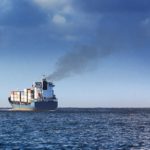Technology readiness for key zero carbon fuels is increasing, but barriers for investment and community readiness remain significant

An increase in national hydrogen energy strategies worldwide has driven renewable energy and land-side hydrogen infrastructure in major countries.
The Lloyd’s Register (LR) Maritime Decarbonisation Hub’s October 2023 update of the Zero Carbon Fuel Monitor, which tracks technology, investment and community readiness of prominent alternative fuels for the maritime energy transition, has found that technology progress across fuel supply chains is evident, especially for ammonia and green hydrogen.
Significant milestones have been achieved for ammonia in 2023, with WinGD’s two stroke ammonia engine having received LR approval in principle as well as MAN Energy Solutions’ (MAN ES) successful completion of the first test engine running on ammonia. Green hydrogen production is also on the rise, and a bunkering license has now been granted in the Netherlands.
Overall, there has been an increase in readiness levels scattered across the key fuels and their supply chain stages, notably ammonia, methanol and hydrogen. A key factor is the success of government strategies for decarbonisation in driving land-side infrastructure expansion.
These investments and support at government level have the potential to contribute to fuel availability, port infrastructure and regulatory advancements that will benefit shipping. There has been an increase in national hydrogen energy strategies worldwide, with major countries such as the UK, China and India actively investing in renewable energy and land-side hydrogen infrastructure.
However, for methane, concerns over methane slip are affecting technology readiness level (TRL). This challenge is being tackled by Safetytech Accelerator-led Methane Abatement in Maritime innovation initiative (MAMII) which is working to identify solutions and mechanisms for capturing, calculating and managing methane slip emissions, and best practices will be shared with industry to tackle this challenge. Additionally, community readiness levels (CRL) of methane and methanol production has been impacted by uncertainties around the scale-up of sustainably sourced carbon.
The Zero Carbon Fuel Monitor update also found that demand for biodiesel has increased, although long term availability of sustainable biofuel feedstock remains uncertain. Efforts to cultivate third-generation feedstocks (characterised by high yield and rapid growth rates) like macroalgae are underway, which can be used for advanced biofuels production.
Given these assessments, the Monitor identified key priority areas to drive the transition forward. A foremost priority is to develop demand profiles to minimise investment risks and create commercially viable business cases for zero-emission shipping. Complementing this is sustainable resource scale-up to enable adequate fuel production for future demand.
Policy consistency across the value chain globally will be essential for attracting investments. Fostering research, development and educational initiatives will help to drive the safe and sustainable adoption of zero carbon fuels, whilst the pace of technology development must be accelerated to meet evolving industry needs.
Amelia Hipwell, Decarbonisation Innovation Manager, LR Maritime Decarbonisation Hub commented:
“Shipping’s transition to zero carbon fuels cannot be achieved through individual action or in isolation, and requires cross-sector collaboration, transparency and knowledge-sharing across the shipping industry. Although technology readiness across the supply chain is increasing for key candidate fuels, significant barriers to adoption remain in terms of investment and community readiness. Hence the need for collective action across stakeholders in the industry to drive forward the transition.”
The Zero Carbon Fuel Monitor online web tool, developed by the LR Maritime Decarbonisation Hub, a joint initiative between Lloyd’s Register Group and Lloyd’s Register Foundation, is an insight-based assessment of fuels readiness that aims to provide the basis for effective decision making as the maritime sector navigates the journey to a decarbonised future.
Source: Lloyd’s Register
Source link
